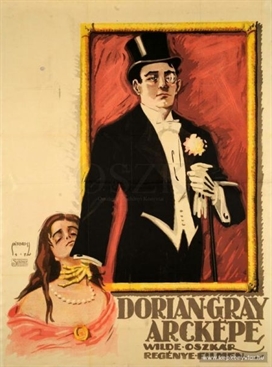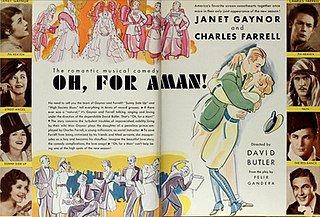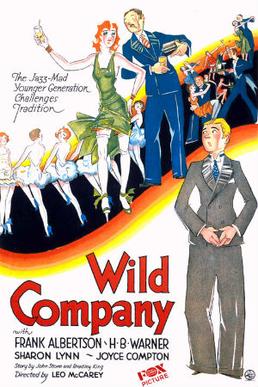Related Research Articles

Béla Ferenc Dezső Blaskó, known professionally as Bela Lugosi, was a Hungarian–American actor, best remembered for portraying Count Dracula in the 1931 horror film classic Dracula, Ygor in Son of Frankenstein (1939) and his roles in many other horror films from 1931 through 1956.

Bela Lugosi (1882–1956), best known for the original screen portrayal of Bram Stoker's Dracula in 1931, performed in many films during the course of his 39-year film career. He appeared in films made in his native Hungary, Germany and New York before re-locating to Hollywood in 1928. Films are listed in order of release.

The Raven is a 1935 American horror film directed by Louis Friedlander and starring Boris Karloff and Béla Lugosi. Billed as having been "suggested by" Edgar Allan Poe's 1845 poem of the same title, excerpts of which are quoted at a few points in the film, it was adapted from an original screenplay by David Boehm. Lugosi stars as a neurosurgeon obsessed with Poe who has a torture chamber in his basement, and Karloff plays an escaped murderer on the run from the police who Lugosi manipulates into doing his dirty work.

One Body Too Many is a 1944 American comedy-mystery film directed by Frank McDonald, starring Bela Lugosi, Jack Haley and Lyle Talbot. The film was the second comedy featuring Haley to be produced by Pine-Thomas Productions, part of the studio's new direction towards comedy films. The original intention was to hire Boris Karloff for the film's key horror role, but Lugosi was hired instead.
Lulu is a 1918 Hungarian film directed by Michael Curtiz and featuring Klára Peterdy and Norbert Dan. Some reference sources list Bela Lugosi in the cast, but that is not true.
99-es számú bérkocsi is a 1918 Hungarian crime drama film directed by Michael Curtiz. The film is sometimes just referred to as 99.
The Wedding Song is a 1918 Hungarian film directed by Alfréd Deésy. The film was released on 27 February 1918, first shown at the Corso Theater in Budapest. Lugosi's co-star in the film, Karoly Lajthay, later went on to direct the first film version of "Dracula", entitled Drakula halála (1923).
A Régiséggyüjtö is a 1918 short comedy Hungarian film directed by Alfréd Deésy and featuring Béla Lugosi and Norbert Dan. The film's title could also translate as The Antique Dealer.
Leoni Leo is a 1917 Hungarian adventure film directed by Alfréd Deésy. The Jozsef Pakots screenplay was adapted from the original novel by George Sand called Leone Leoni. The sets were designed by Sironthai Istvan.
Casanova is a 1918 Hungarian film directed by Alfréd Deésy and starring Deesy in the title role. For years, this film was listed in reference books as a Bela Lugosi film, since originally Star Films advertised that Lugosi was set to play Casanova. He was replaced, however, at the last minute by the director Alfred Deesy, who decided to play the role himself. If indeed Lugosi shot any scenes for this film, they did not wind up in the finished product. The film nevertheless still turns up occasionally in Lugosi's filmography, perhaps because Lugosi had played Casanova previously on the Hungarian stage.
Masked Ball is a 1917 Hungarian film directed by Alfréd Deésy and featuring Béla Lugosi and Norbert Dan. The screenplay was written by Francesco Maria Piave, Eugène Scribe and Antonio Somma. It was based on the opera Un ballo in maschera by Giuseppe Verdi.
Küzdelem a létért is a 1918 Hungarian drama film directed by Alfréd Deésy. It is based on French writer Alphonse Daudet's 1889 play La lutte pour la vie. The film was advertised and discussed in Hungarian trade publications as A Leopard.
Lili is a 1917 Hungarian comedy film directed by Cornelius Hintner. The film was first shown on 21 October 1917 at the Urania Theater in Budapest. Some sources list Bela Lugosi in the cast, but that is unverified.

Az élet királya is a 1918 Hungarian film directed by Alfréd Deésy. It is an adaptation of The Picture of Dorian Gray by Oscar Wilde.
Hypnose: Sklaven fremden Willens is a 1920 German silent film directed by Richard Eichberg. It was the first German production actor Bela Lugosi made in Germany, following Bruno Declari leaving Eichberg-Film to form his own production company.

Oh, For a Man! is a 1930 American black-and-white musical comedy film based on a short story, "Stolen Thunder" by Mary F. Watkins. The original story appeared in The Saturday Evening Post June 7, 1930. Lugosi's character of Frescatti was later added to the screenplay. Well-dressed with a goatee, he resembled his Dr. Benet role in The Invisible Ray (1936) in stills. Since the criminal of the story does not receive just punishment in the end, the producers were years later unable to reissue this film after the establishment of the production code.

Voodoo Man is a 1944 American horror film directed by William Beaudine, and starring Bela Lugosi, John Carradine and George Zucco.

Genius at Work is a 1946 American comedy film directed by Leslie Goodwins and written by Monte Brice and Robert E. Kent. The film stars Wally Brown, Alan Carney, Anne Jeffreys, Lionel Atwill and Bela Lugosi. The film was released on October 20, 1946, by RKO Pictures.

Wild Company is a 1930 American pre-Code drama film directed by Leo McCarey and written by Bradley King. The film stars Frank Albertson, Joyce Compton, Sharon Lynn, H. B. Warner, Richard Keene and Frances McCoy. The film was released on July 5, 1930, by Fox Film Corporation. Although Bela Lugosi had a relatively brief role in this film as a nightclub owner, his character's murder provides a pivotal plot point.
Prisoners is a 1929 American sound part-talkie film produced by Walter Morosco and directed by William Seiter for First National Pictures. In addition to sequences with audible dialogue or talking sequences, the film features a synchronized musical score and sound effects along with English intertitles. The sound was recorded via the Vitaphone sound-on-disc process. The screenplay was written by Forrest Halsey, based on the novel by Ferenc Molnar. Lee Garmes was the cinematographer.
References
- ↑ Bela Lugosi: Dreams and Nightmares by Gary D. Rhodes, with Richard Sheffield, (2007) Collectables/Alpha Video Publishers, ISBN 0-9773798-1-7 (hardcover)
- ↑ "The Colonel (1918)".